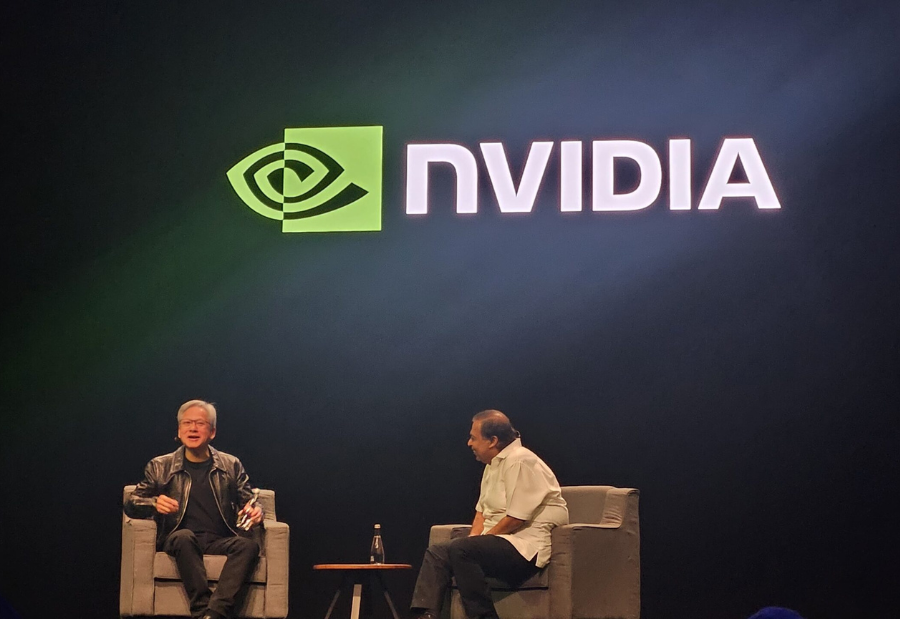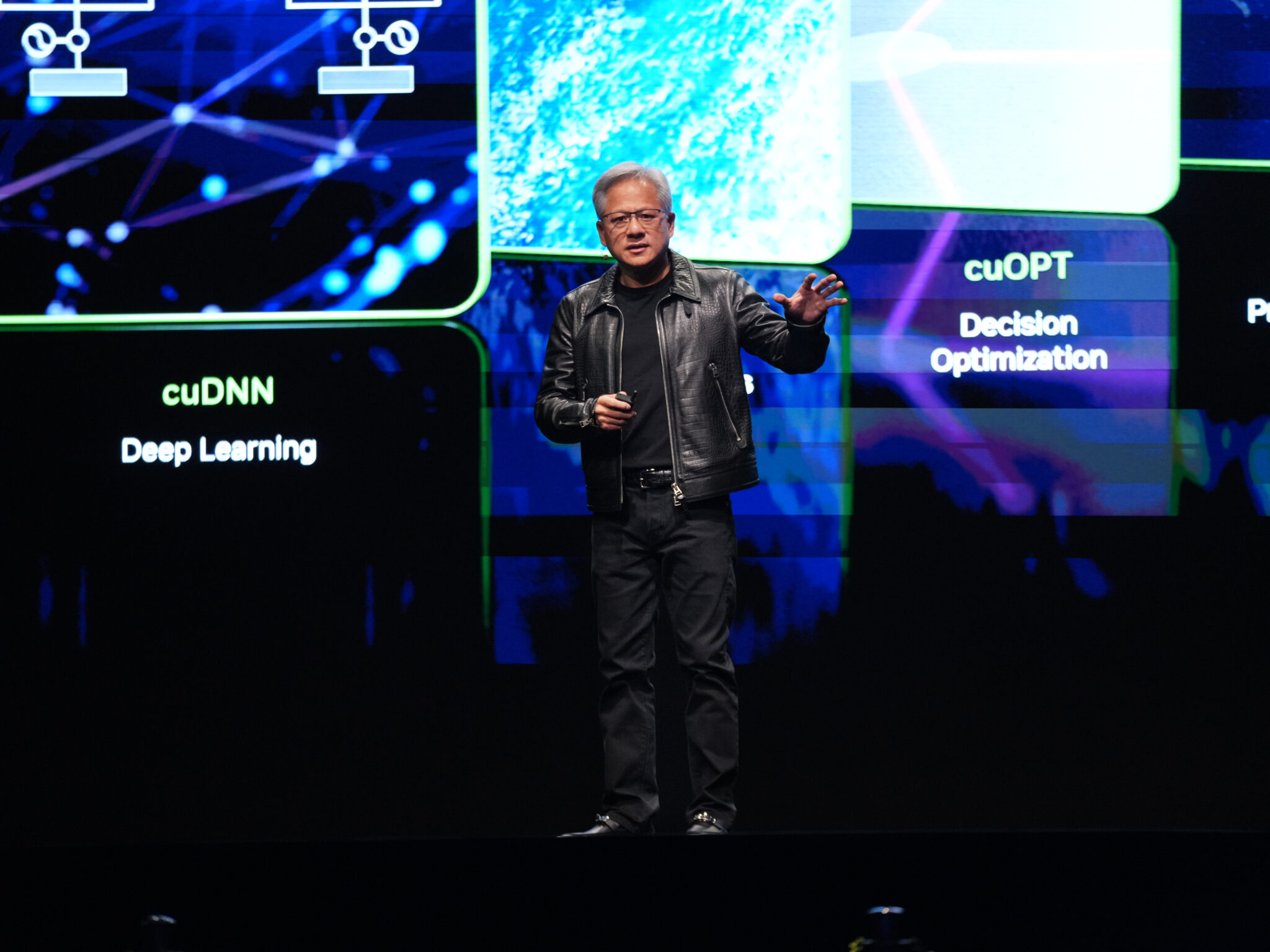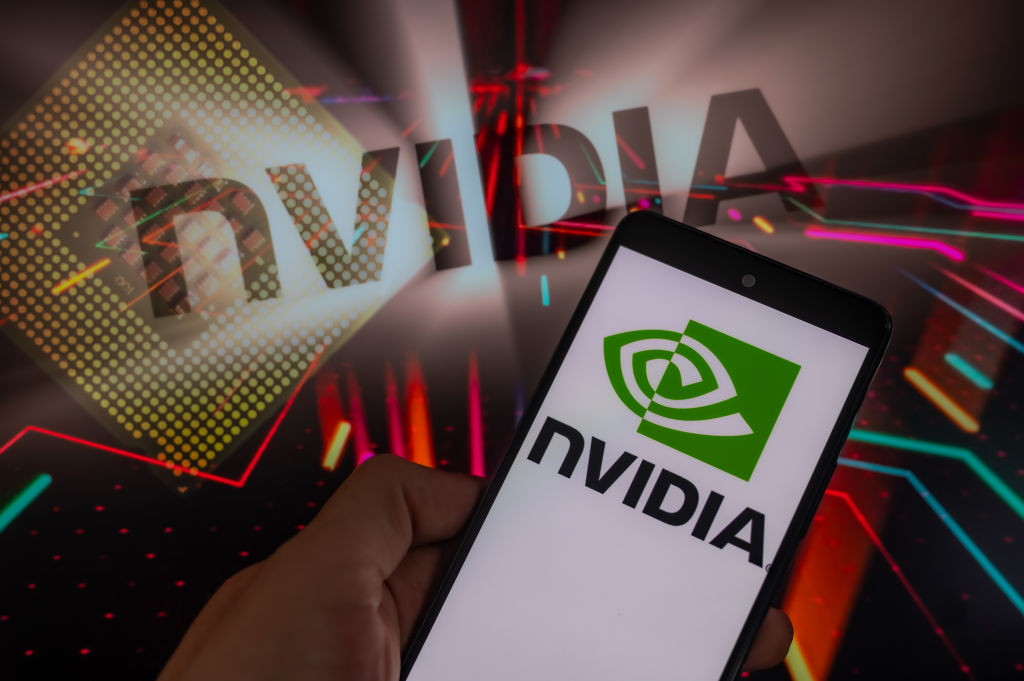On October 24, 2024, Nvidia, the American tech giant renowned for its advancements in graphics processing units (GPUs) and artificial intelligence (AI), unveiled a series of pivotal partnerships and initiatives in India, marking a significant milestone in its global expansion strategy. This move is particularly noteworthy as it aligns with India’s aspirations to position itself as a key player in the AI and semiconductor industries. The announcements were made during an AI summit in Mumbai, attended by industry luminaries, including Bollywood superstar Akshay Kumar and Reliance Industries’ Chairman Mukesh Ambani.
Here's ads banner inside a post

Strategic Partnerships with Indian Giants
Nvidia’s CEO, Jensen Huang, emphasized the importance of India as a technological hub during his keynote address. The company has forged partnerships with several major Indian firms, including Reliance Industries, Yotta, and Tata Communications, aimed at establishing robust AI infrastructure across the country. These collaborations are not just symbolic; they represent a commitment to building a comprehensive ecosystem that supports AI development and deployment.

Here's ads banner inside a post
“India used to be a country that produced software. In the future, India is going to export AI,” Huang declared, highlighting a transformative shift in the nation’s role in the global tech landscape. This bold prediction underscores the potential of India’s burgeoning tech industry, fueled by a talented workforce and an increasing appetite for innovative technologies.
The Hindi Language Model: A Game Changer
At the heart of Nvidia’s latest initiative is the introduction of the Nemotron-4-Mini-Hindi 4B, a compact language model designed to cater to the needs of Hindi-speaking users. With Hindi being one of the most widely spoken languages in India, the development of this language model is a strategic move to enhance accessibility and engagement for millions of users.

Here's ads banner inside a post
Companies leveraging Nvidia hardware will be able to deploy this model, and Indian IT consultancy Tech Mahindra is set to utilize Nvidia’s framework to launch its own Hindi AI initiative, dubbed Project Indus 2.0. This collaboration signals a growing recognition of the need for localized AI solutions that resonate with diverse linguistic and cultural backgrounds in India.

Training a New Workforce
Beyond technological advancements, Nvidia is investing in human capital by collaborating with major Indian IT firms like Infosys, Wipro, and Tata Consultancy Services (TCS). The objective is to train approximately 500,000 developers in creating and implementing AI agents using Nvidia’s software. This initiative not only aims to elevate the skill sets of Indian professionals but also strengthens Nvidia’s foothold in the Indian tech ecosystem, fostering a community of AI developers who can propel the technology further.

Huang emphasized that this training initiative would prepare Indian developers to tackle complex AI challenges and enhance their employability in an increasingly competitive job market. As AI continues to evolve, the demand for skilled professionals who can innovate and apply these technologies will only grow. Nvidia’s commitment to training a large number of developers reflects its understanding of the critical role that education and skill development play in driving technological advancement.

India’s Vision for Semiconductor Self-Sufficiency
Nvidia’s expansion in India coincides with Prime Minister Narendra Modi’s broader vision to make the country a major player in the semiconductor sector. Modi has been actively courting foreign technology companies to invest in India’s semiconductor landscape, with a bold target to grow the electronics industry from approximately $155 billion to $500 billion by 2030.

This ambition is crucial for India as it strives for self-sufficiency in manufacturing critical technologies. The government’s focus on developing a domestic semiconductor ecosystem aims to reduce reliance on imports and enhance national security. Nvidia’s involvement could play a significant role in this transformation, potentially enhancing the country’s capabilities in AI and related fields. Huang acknowledged India’s importance in the global computer industry, calling it “central to the IT industry,” thus reaffirming the nation’s strategic significance in the tech landscape.

Reliance’s Ambitions in AI
Ambani’s presence at the Nvidia summit highlights the ambitious plans of Reliance Jio, the telecommunications arm of Reliance Industries. Jio has rapidly evolved into India’s largest mobile provider within a decade and is now poised to lead the AI revolution in the country.

“Jio aims to build large-scale AI infrastructure to democratize AI, leveraging data from almost a billion internet users in the coming years,” Neil Shah, a partner at Counterpoint Research, stated. This ambition not only underscores Jio’s strategic vision but also opens significant opportunities for Nvidia and other tech companies to engage with a vast consumer base.

Shah further elaborated on how Jio’s infrastructure will enable various sectors to harness AI, from healthcare and education to agriculture and finance. By tapping into the extensive data generated by its users, Jio aims to create AI solutions that can address the unique challenges faced by Indian consumers and businesses.
Unlocking Opportunities for Growth
The unfolding developments present an array of possibilities for both Nvidia and the Indian tech ecosystem. With the rapid advancement of AI technologies and the increasing demand for innovative solutions, Nvidia is well-positioned to capitalize on India’s expanding market. The potential for AI applications across various sectors—ranging from healthcare to education, agriculture, and beyond—is immense.

Moreover, as Indian companies embrace AI to drive efficiency and innovation, the partnership between Nvidia and local firms could foster a culture of experimentation and entrepreneurship. By enabling startups and established companies alike to leverage cutting-edge AI technologies, Nvidia’s initiatives could pave the way for groundbreaking solutions tailored to the needs of the Indian market.

The Broader Implications
Nvidia’s recent moves in India highlight a significant trend in the global technology landscape: the increasing importance of localized solutions and partnerships. As technology becomes more integrated into daily life, the demand for systems and services that cater to specific linguistic and cultural contexts will grow. Nvidia’s focus on developing a Hindi language model illustrates its commitment to inclusivity and accessibility, ensuring that the benefits of AI are extended to a broader audience.

Furthermore, as India continues to strengthen its position as a global tech hub, the collaboration between Nvidia and Indian firms could serve as a blueprint for other international companies looking to enter the Indian market. The strategic partnerships forged by Nvidia may inspire similar initiatives across various industries, driving innovation and growth.

In summary, Nvidia’s aggressive expansion in India, exemplified by the launch of the Hindi language model and strategic partnerships with leading firms, marks a crucial chapter in the intersection of technology and local culture. By investing in both infrastructure and human capital, Nvidia not only seeks to enhance its own business prospects but also contributes to the broader narrative of India’s technological evolution. As the nation stands on the brink of an AI-driven future, the collaborative efforts of companies like Nvidia, Reliance, and various IT firms will undoubtedly play a crucial role in shaping the landscape of technology in India, empowering a new generation of innovators and entrepreneurs.


